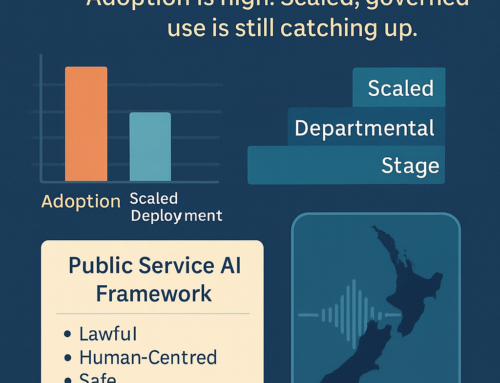SMEs must up the social media ante
KERRI JACKSON
Last updated 14:40 26/10/2012
Source: Business Day – NZ Herald
Small businesses need to take a more sophisticated approach to social media – without being scared off it completely- if they are to make the most of the opportunities it offers.
In the almost 10 years since the launch of sites such as LinkedIn and Facebook, the social media landscape has dramatically, and small to medium enterprises (SMEs) must keep evolving their approach to it to be effective.
Director of Net Branding, a social media and digital content business, Cathy Mellet says the biggest trap is putting all your online eggs into the social media basket because it seems cheaper and easier than building and maintaining a website.
“You don’t have the same control over content on your Facebook page or Twitter that you have on a website. People don’t always understand that initially.”
Social media is an effective tool for allowing businesses to build and audience, but it’s best done in conjunction with other tools such as a website, Mellet says.
“If a business came to me and said they were thinking of closing down but were planning to spend their last few dollars on social media as a last ditch effort to keep going, I’d suggest they spend it on something else.
“Social media is a hugely effective tool and I think all businesses should have a social media presence but it is hard work and not a one-night wonder.”
Mellet says the other big mistake SMEs fall into with social media content is committing to it passionately for about two weeks before the novelty wears off. “It’s a journey not a destination, and that might be a terrible cliche; but it’s true. Your content must always be up-to-date and relevant.”
She adds that one of the most overlooked aspects of social media is blogging which allows SMEs to have added control over content as well as direct, immediate communication with their audience.
Xero CEO Rod Drury says the one of the biggest changes social media has made to business is it has inverted the customer care queue. “A company’s response to customers used to be done in private, now it’s public. If you use that well it can give you a great competitive advantage.”
He adds that is often easier for SMEs to manage than larger businesses where social media feedback can occasionally devolve into a “flame” session – in other words where it triggers a deluge of consumer complaints.
But talk of transparency and a lack of control over social media comes back to what Mellet says is still the biggest hurdle in getting SMEs to embrace social media – fear.
“The key is understanding what you want to achieve from it.”
While larger corporates may be able to hire a third party contractor to provide their social media content that expense is often not realistic for small businesses. SMEs are often better off spending some of that money on social media training so they can provide content themselves.
“It’s really about self-confidence and empowering people to take care of their own social media. Once they start they realise it’s not difficult or scary.”
For Daniel Friedlander, project manager and property portfolio director of Samson Corporation which owns Auckland’s iconic Ironbank and Geyser buildings, social media has been something of a recent revelation.
His company, which is close to 50 years old, began using social media about six months ago. Initially resistant to the idea, he has found “it really works”.
He says his initial reluctant was because he didn’t really understand social media.
“It is very confusing if you haven’t grown up with it, but really it’s just another, different form of communicating your product – in a very instant way.”
He adds though that he thinks social media has evolved and “grown up” as a channel useful to business and he can see it is the way of the future.
“It’s an on-going conversation with customers, and that is interesting to me.”
Drury says all businesses including SMEs must now have some element of social media strategy in their business plan. “It doesn’t have to be a complete communications plan but it needs to be there somewhere. It is a really useful way to build and audience. And there are some interesting things happening.
“I am at a conference at the moment and before it has started people have connected on social media and arranged meetings and working before they get here so they’re not coming in cold. It’s a clear example of how social media is changing the way we do things.”
– © Fairfax NZ News



